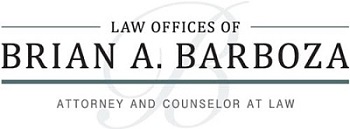Perhaps you had unexpected medical bills or necessary car repairs that insurance did not cover. Maybe your employment situation changed without warning. There are many reasons why you may find yourself in debt.
When you decide that you want to work your way out of debt, creating a debt repayment plan is a step in the right direction. While it will take time to pay off all of your debts, the longer you avoid addressing the issue, the greater the problem becomes.
Make a list of your debts
You have to start somewhere. While creating a list of all of your debts may seem daunting, it is important to know exactly what you are facing. Make a list of every entity that you owe. In addition to credit cards, be sure to include all outstanding loans including student loans, car loans or a mortgage on your home. Note the amount owed to each creditor, the minimum payments required, penalties for late payments and the interest for each.
Create a ranking for your debts
Once you are aware of exactly how much you owe, you need to decide the order in which you will pay everything off. You may choose to start with the smallest debt and quickest to pay off. Another option is to start with the debt that accumulates the most interest. There is no one specific ranking order that is correct. It is up to you to decide how you choose to address the debt.
Create a budget
Take a look at your expenses and find areas where you can cut back to find money to help pay off your debts. Adjust your grocery shopping habits, stop eating out at restaurants, find a less expensive cable package or wireless plan. Carefully look at where your money goes each month and find options to reduce the amount you pay so that you can begin to redirect that money into paying off debt. If budgeting is not enough, consider picking up a second job, part-time job, or taking on more hours at your current job.
Focus on one debt at a time
While you should continue to track the balance due for each, you should focus on paying off only one at a time. Try to pay the minimum amount due for each every month, but only work to pay down the balance for one creditor. Spreading what little you have too thinly among several creditors at the same time will not cancel out any debts. Pay off one, then focus on the next on your list.
Once you have paid off your debts and you are in the clear, do not fall back into your previous habits. Stick with your budgeting plan and direct that money into a savings account. A savings account can be a helpful cushion waiting for you if you run into another financial emergency in the future.

